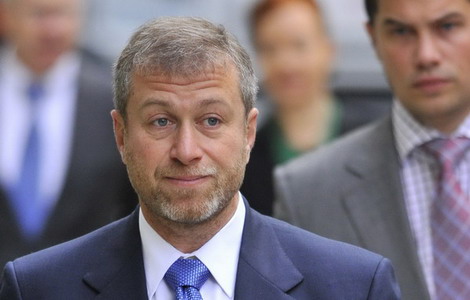EU Commission urges Europe to act on Greece
Updated: 2011-10-13 13:17
(Agencies)
|
|||||||||||
BRUSSELS - Europe needs to take decisive action on Greece, the head of the EU's executive said on Wednesday, outlining a broad plan to contain the crisis threatening the euro as officials said banks faced heavier losses on their holdings of Greek debt.
The warning, delivered by Jose Manuel Barroso, President of the European Commission, is intended to galvanise France and Germany, the bloc's main powers, into action when they meet on Oct. 23 under international pressure to limit the damage the debt crisis risks inflicting on the world economy.
"Doubts and uncertainties over Greece's future jeopardise stability in the entire euro area and beyond," said Barroso. "The time has come to remove these doubts."
The head of the EU's executive outlined a five-point proposal to tackle the economic crisis, spanning higher capital hurdles for banks and extra powers for the Commission to intervene in national budget setting.
Although he has no power to introduce such measures himself, his view is influential and keeps pressure on German Chancellor Angela Merkel and French President Nicolas Sarkozy who have promised a deal to stabilise the euro zone this month.
A key part of that plan will be to strengthen banks against losses on Greek loans. Officials said on Wednesday that countries will ask banks to accept losses of up to 50 percent -- far more than the 21 percent proposed in July.
But Europe's banks need protection, in the form of extra capital, from the fallout of such a move.
Central to Barroso's proposal, which needs the backing of EU member states, is the early introduction of the European Stability Mechanism (ESM) to replace the temporary EFSF bailout scheme by mid-2012 -- an idea originally put forward by Germany.
The 500 billion euro ($690 billion) permanent fund would have a solid base of paid-in capital and power to intervene on markets to help struggling states.
It would also introduce the first European framework for coping with countries that default on their debt, a step some investors worry could herald even steeper losses.
"Despite assurances... to support countries under programmes and... that private sector involvement would be strictly limited to Greece, contagion has not been contained," Barroso said.
"To put a stop to the threat... we must strengthen firewalls. We must have credible stronger instruments," said the head of the EU executive. "We must accelerate the introduction of the ESM."
Barroso also pushed for bolstering the strength of the current European Financial Stability Facility (EFSF), a vehicle borrowing money with the backing of euro zone guarantees and lending it on to struggling countries such as Ireland.
"The EFSF must be more than a firewall, it must have real firepower. We must maximise its capacity."
Hot Topics
Libya conflict, Gaddafi, Oil spill, Palace Museum scandal, Inflation, Japan's new PM, Trapped miners, Mooncake tax, Weekly photos, Hurricane Irene
Editor's Picks

|

|

|

|

|

|







